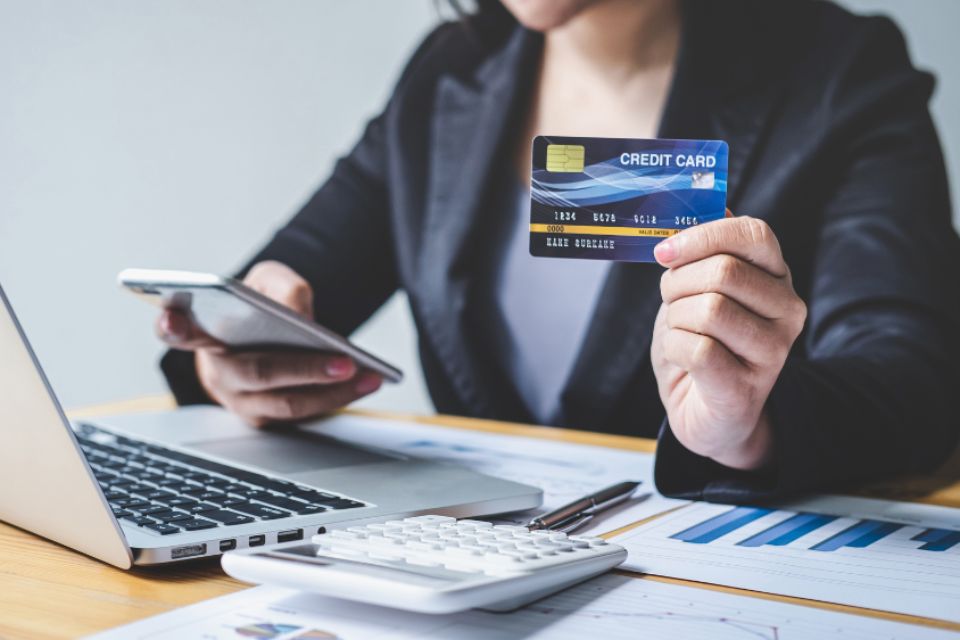Using a credit card to pay for monthly costs looks to be an excellent approach to accumulating credit card points and perks. Many of us are keen to do this. However, it’s important to assess the advantages and disadvantages before deciding to use a credit card for bill payments.
Pros of paying bills with a credit card:
- Accumulate points or rewards: By paying your bills with a credit card, you can accumulate points or awards that can be exchanged for a range of benefits, like travel, cash back, or merchandise.
- Automatic payments that save you time: You can save time and effort by setting up automatic payments with your credit card. You won’t have to pay each bill individually every month.
- The ease of not having to write checks: When paying bills using a credit card, there is no need to write checks, address envelopes, or mail them. It simplifies the payment process.
- Easier expense tracking: Tracking your spending and managing your budget is made simpler when all of your expenses are included on a single credit card statement.
- More time to pay: Using a credit card to pay for expenses gives you a longer grace period before the credit card payment is due, giving you more time to manage your money.
Helps fulfill the conditions for the credit card sign-up bonus: Some credit cards provide sign-up bonuses in exchange for minimum spending within a predetermined time range. You can fulfill this criterion and be eligible for the bonus by using a credit card to pay for your expenses.
Cons of using a credit card to pay bills
- Potential charges: Certain billers might tack on convenience charges for credit card payments. For higher bills, these costs may outweigh the advantages of using a credit card.
- Added debt: Using a credit card to pay bills when you don’t have the money to pay the entire balance in full might result in added debt and interest fees. It’s critical to practice financial restraint and refrain from overspending.
- Additional interest if the balance is not paid in full: Carrying debt on your credit card results in interest charges, which can negate the value of any points accumulated.
- Your credit utilization ratio—the proportion of available credit you’re using—could increase as a result of paying bills with a credit card. Your credit scores may suffer if you have a higher credit utilization rate.
Which Bills Should I Pay Using a Credit Card?
- Mortgage: Due to the processing fees, the majority of mortgage servicers do not accept credit card payments. You may be able to pay your mortgage with a credit card through third-party services like Plastiq, but these services frequently impose convenience costs that should be weighed against potential benefits.
- Rent: Although many landlords still only accept cash or checks, some now accept credit cards. It can be practical to earn incentives if your landlord accepts credit cards without a fee.
- Car payment: To reduce processing fees, auto lenders typically do not accept credit card payments. It may be possible to transfer a car loan to a credit card with a 0% introductory APR for balance transfers, but doing so needs careful thought and money management.
- Home and auto insurance: If there are no fees involved, paying insurance premiums using a credit card can be advantageous. When premiums are fully paid, some insurers waive fees.
- Health insurance: Self-employed people can use a credit card to pay their health insurance costs, but possibilities may differ between insurers and states. Ask your insurance about the details of their payment procedures.
- Taxes: Although some taxes can be paid with a credit card, the IRS and other taxing bodies frequently impose convenience fees. Consider the costs before deciding whether using a credit card to make a purchase is worthwhile.
- Utilities, telephone, internet, and cable: Most phone, cable, and internet service providers accept credit card payments without additional costs. Utility companies may levy convenience fees, however, the benefits of larger bills may outweigh the expenses.
- Subscription services: Subscription services, such as streaming platforms, frequently promote fee-free credit card payments. These are the perfect expenses to charge to a credit card for convenience and benefits.
- Student loans: Depending on the lender, paying back student loans with a credit card may be an option. However, consider the costs and interest rates to see if it’s profitable.
Conclusion
To sum up, using a credit card to pay for expenses might be useful, but it’s important to practice sound money management and pay the credit card debt in full each month. If paying using a credit card makes sense for you, consider convenience fees, interest rates, and potential incentives when evaluating each payment separately.
